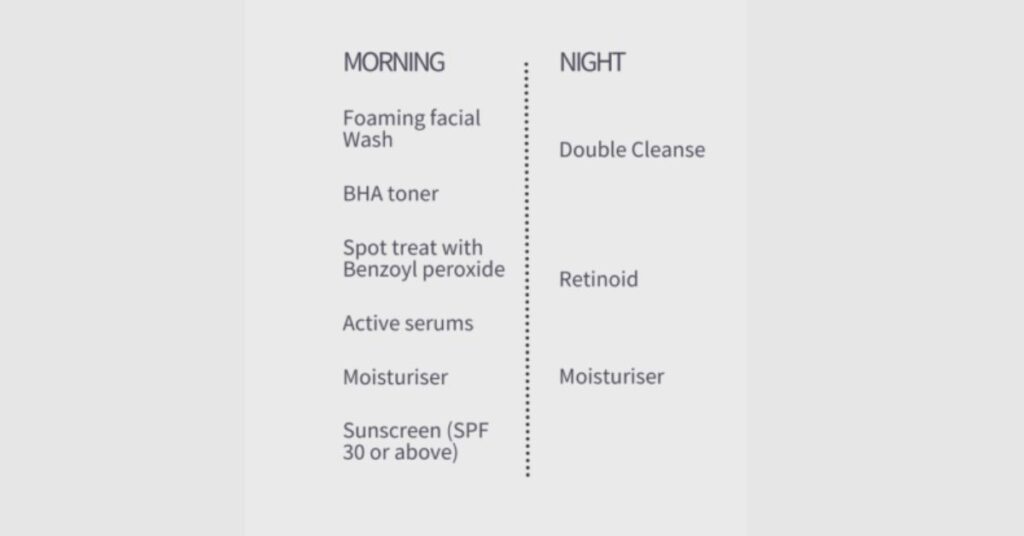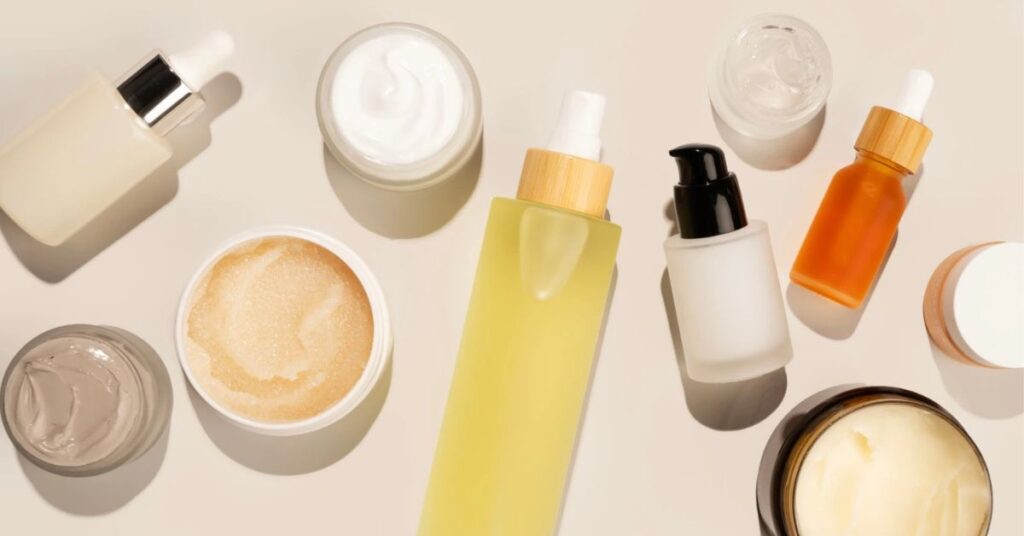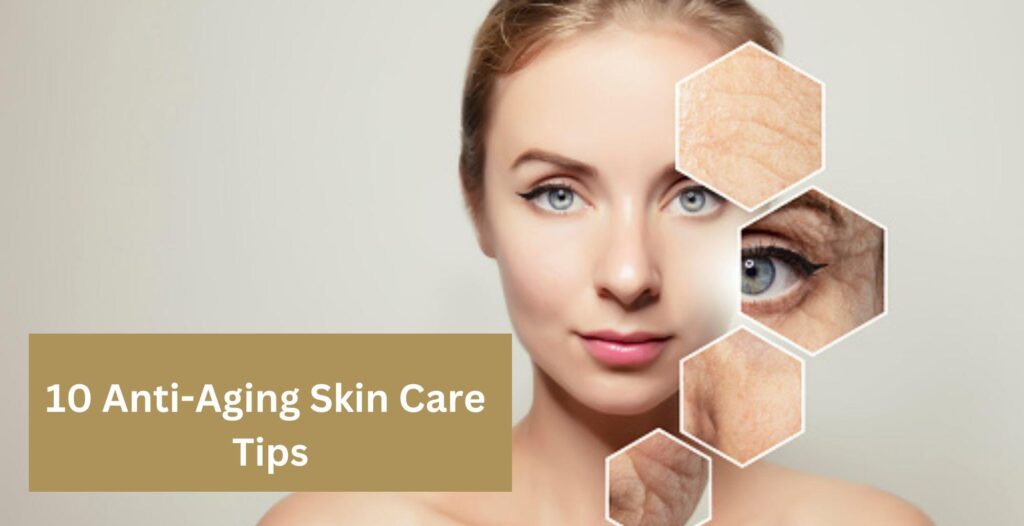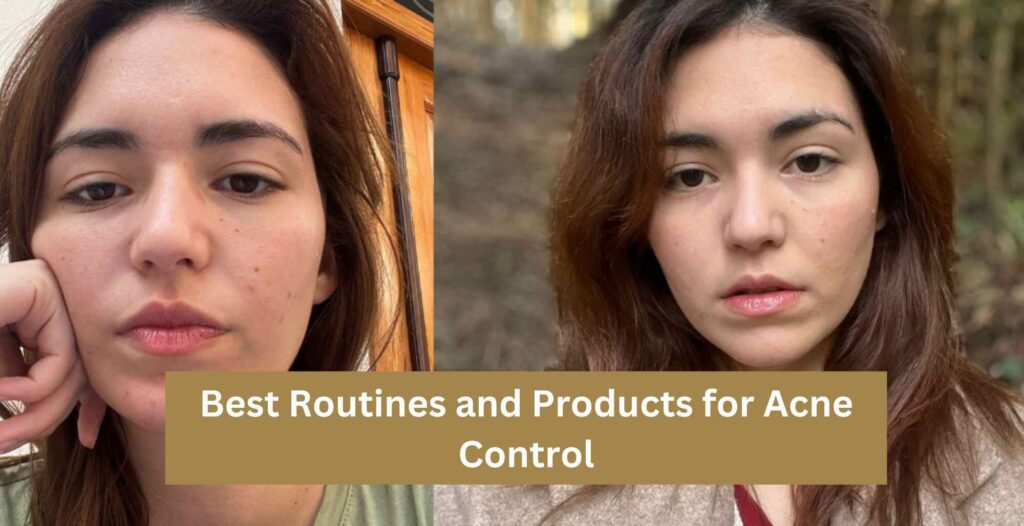Not alone is acne an issue for teenagers—many adults also suffer from it. Long after adolescence ends, hormonal fluctuations, stress, food, and even skincare practices can cause breakouts.
Developing a skincare regimen customized to your skin type is essential to preventing adult acne. Clear, healthy, and beautiful skin may be maintained with the correct products and routine.
Table of Contents:
Understand Your Skin Type – Why It Matters for Your Skincare!
Oily Skin:
This skin type frequently has more pores and a shiny appearance. Because too much oil can block pores and produce acne, it is prone to breakouts and blackheads. Choose lightweight, oil-free products that regulate oil production without depriving your skin of its natural moisture if you have oily skin.
Dry Skin:
Flaky patches and a tight feeling are common in dry skin. It doesn’t create as much oil, but it can still break out, and they are frequently accompanied by redness or discomfort. It’s crucial to use mild, moisturizing products on dry skin to keep it from getting too dry and causing acne.
Combination Skin:
This type of skin has dry and oily patches. Usually, the cheeks are dryer and the T-zone (forehead, nose, and chin) is oily. It might be challenging to manage oil and moisture control when dealing with mixed skin. Select gentle products that are suitable for both parts of your face.
Sensitive Skin:
Sensitive skin is prone to redness and inflammation and is readily irritated. It can react to certain chemicals or environmental conditions, which makes selecting the best skincare products more difficult. Use gentle, fragrance-free products to calm sensitive skin and stay away from frequent irritants.
What Causes Acne in Adults? – From Stress to Skincare!
- Hormonal Changes: Changes in hormones during menstruation, pregnancy, or menopause might lead to an increase in the production of oil. Overindulgence in oil can block pores and cause outbreaks.
- Stress: Stress raises cortisol levels, which boosts the production of oil.Blackheads and pimples can be caused by closed pores as a result of excess oil.
- Diet: Dairy products and high-sugar foods can raise insulin levels. Acne may be exacerbated by elevated insulin because it can increase inflammation and oil production.
- Products for Skincare: The use of thick or greasy cosmetics might clog pores. Using harsh substances can cause skin irritation, which can result in breakouts and inflammation. To avoid acne, choose non-comedogenic products suited for your skin type.
What Skin Care Routine Should You Follow? A Step-by-Step Guide!
Morning Skincare Routine:
- Gentle Cleanser: A gentle, non-comedogenic cleanser to remove overnight oils and impurities.Salicylic acid or benzoyl peroxide if you have oily or acne-prone skin. These ingredients help keep pores clear and reduce the risk of acne. A salicylic acid-based cleanser can effectively prevent breakouts.
- Toner (Optional): A toner with ingredients like witch hazel or glycolic acid if you have oily or combination skin. Helps remove excess oil and balance the skin. Alcohol-based toners, can dry out the skin and increase oil production.
- Lightweight Moisturizer: A lightweight, oil-free moisturizer to keep your skin hydrated.Products labeled as “non-comedogenic” to ensure they won’t clog pores. Moisturizing is essential, even for oily skin, to maintain a healthy skin barrier and prevent excess oil production.
- Sunscreen: A broad-spectrum sunscreen with at least SPF 30. Protects your skin from UV damage, which can worsen acne and lead to post-inflammatory hyperpigmentation. Opt for a mineral-based sunscreen if you have sensitive or acne-prone skin to avoid irritation.

Evening Skincare Routine:
- Double Cleanse: Use micellar water or an oil-based cleanser to start by taking off sunscreen and makeup. To fully wash your skin, use a mild cleanser thereafter.
- Exfoliation (Two to Three Times a Week): Remove dead skin cells and avoid clogged pores by exfoliating your skin two to three times a week with a chemical exfoliator such as an AHA or BHA. Physical washes should be avoided since they can cause skin irritation.
- Treatment: Use a benzoyl peroxide, salicylic acid, or retinoid-containing acne product. By clearing clogged pores, lowering inflammation, and encouraging cell turnover, these substances help treat acne. To prevent irritation, take it easy at first, especially when using medications like retinoids.
- Moisturizer: To keep your skin hydrated and combat the drying effects of acne treatments, use a non-comedogenic moisturizer even at night.
When to Use Additional Skincare Products – A Guide to Enhancing Your Routine!
Adding more skincare products to your regimen can improve the condition of your skin and help avoid acne. The following explains when and why to utilize them:

An advantageous addition to your weekly regimen is a clay mask. Its purpose is to remove extra oil and pollutants from your skin. You can help pull out toxins and sebum that can clog pores and cause breakouts by using a clay mask once a week. This kind of mask is particularly beneficial for oily skin types as it minimizes shine and maintains clear pores.
A moisturizing mask, on the other hand, is perfect if your skin feels really tight or dry. This could occur during the colder months when the air is less humid or if you’re utilising acne treatments, which can occasionally dry up the skin. Rehydrating and soothing dry or irritated skin are two benefits of using a hydrating mask.
Applying a moisturizing mask helps replenish your skin’s moisture content and improve its comfort if you see flakiness or pain. As directed by the product’s directions, apply the mask and let it sit for ten to twenty minutes before rinsing it off. To help seal in the moisture, use a mild moisturizer afterward.
Why Is Consistency Important? – What You Need to Know!
Any skincare regimen must be consistent, but it’s extremely important for acne prevention. Maintaining a regular schedule guarantees that the items you use are beneficial to your skin and help you keep clear skin.
First of all, a regular skincare regimen keeps your skin in balance and takes care of daily concerns like oil production, dehydration, and acne prevention. By sticking to your regimen every morning and evening, you can lessen the chance of contaminants and extra oil building up, which can cause outbreaks.
Second, it takes time to see obvious improvements in skincare products. The majority of acne remedies function by targeting the root causes of outbreaks and progressively improving skin quality. It’s crucial to exercise patience and let the goods a few weeks to start working. Results may be slowed down or delayed if this procedure is disrupted by skipping days or switching products often.
So, a regular skincare regimen helps to keep your skin in balance, and following through with your regimen will help you see the desired results.
FAQS:
1. What is the best skincare routine for preventing adult acne?
The ideal regimen consists of a light moisturizer, sunscreen, a mild cleanser, and an optional toner in the morning. Apply a moisturizer, utilize targeted treatments, exfoliate two to three times a week, and double cleanse in the evening. The secret is to be consistent and pick items that are appropriate for your skin type.
2. How often should I use a clay mask for acne prevention?
You can use a clay mask once a week. It lowers the chance of breakouts by drawing contaminants from your pores and absorbing excess oil.
3. Can I use a hydrating mask if I have oily skin?
Yes, a moisturizing mask is beneficial for all skin types, even oily ones, especially if your skin feels tight or dry. Restoring moisture to your skin without making it oily is possible with a hydrating mask, which is crucial for keeping your skin barrier strong.
4. How long does it take to see results from a new skincare routine?
Usually takes a few weeks before effects become apparent. Skincare products must be used consistently and given time to work. If you don’t notice results right away, don’t give up; persevere with your regimen for the greatest results.
Conclusion:
A carefully thought-out skincare regimen that takes into account your unique skin type and concerns is necessary to prevent adult acne. Understanding your skin’s requirements and using the appropriate products will help you control oil production, maintain clear pores, and keep your complexion looking good.
Read Also :


